The British territory with Europe's harshest abortion laws
- Published

Rosalina Oliva crossed the border into Spain to have an abortion in 2008
The tiny British territory of Gibraltar has the harshest anti-abortion laws anywhere in Europe - the penalty for breaching the law is life imprisonment. But with Brexit looming and the Irish abortion referendum just weeks away, campaigners are hoping for change.
Gibraltar's residents, who live on a two-mile strip of land at the tip of Spain, are British citizens, and many feel a deep affinity with the UK.
But in one respect they are very different.
Unlike in England, Scotland and Wales - where abortion can legally be performed - abortion in Gibraltar is punishable by life imprisonment under section 162 of the 2011 Crimes Act.
"I don't see how we can say we are part of the EU, part of Britain, and have such a difference in that respect. It's ridiculous," Rosalina Oliva tells the BBC's Victoria Derbyshire programme.
She is a resident of Gibraltar who crossed the border into Spain to have an abortion in 2008.
She already had two children when she found out she was pregnant again, with a partner she did not want to stay in a relationship with.
"Mentally, I wasn't strong enough to go through another pregnancy. It was something I decided there and then I couldn't do, in the circumstances I was in," she says.
She says it was "daunting" to have to travel to an unfamiliar country - with a healthcare system she did not fully understand - to have such an "invasive" procedure.
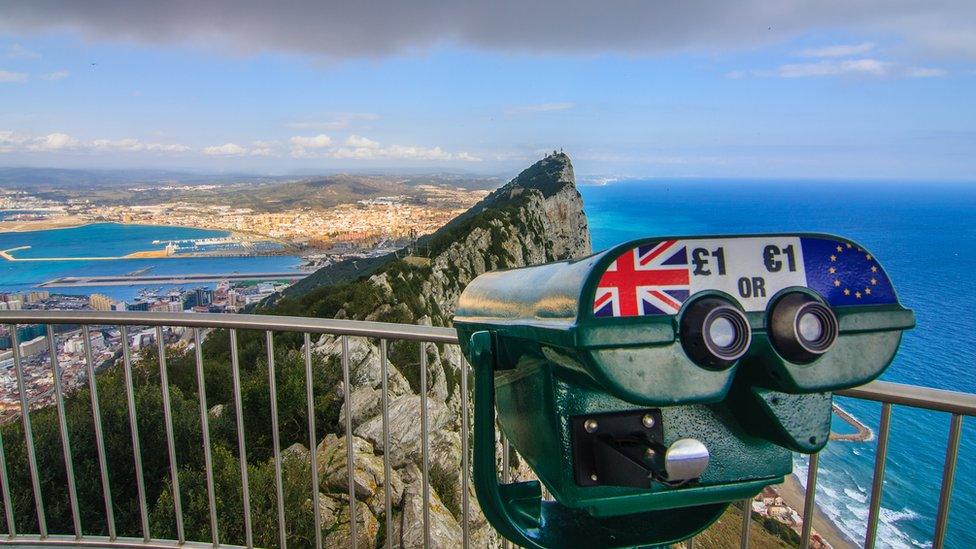
Gibraltar has been under British control for more than 300 years
Some worry crossing the border into Spain to seek a termination will become more difficult after Brexit.
Campaigners even fear that this, combined with the powerful taboo against abortion, might mean that dangerous backstreet terminations will fill the gap.
No-one in modern times has actually faced life imprisonment, but it is nonetheless symbolic of the strict criminalisation of abortion in the territory, which campaigners say creates deep anxiety for those who decide to seek a termination.
Ms Oliva says abortion simply needs to be decriminalised.
"The fact that right now if you were to go through with it you could be sentenced to life in prison is scary for a lot of women.
"And that might actually put them off going through something they feel they need to do."

Abortion laws

A referendum on Ireland's abortion laws is to take place on 25 May
In Gibraltar, abortion is punishable by life imprisonment under section 162 of the 2011 Crimes Act, although this has not been used in modern times
Abortion is legal in Spain in the first 14 weeks of pregnancy. Plans to limit abortion to cases of rape or where the mother's health is at serious risk were dropped in 2014
Abortions can legally be performed in England, Wales and Scotland before 24 weeks. In some cases - such as if the mother's life is at risk - they can be carried out after 24 weeks
In Northern Ireland, a termination is permitted only if a woman's life is at risk or if there is a risk of permanent and serious damage to her mental or physical health
A referendum on the Republic of Ireland's strict abortion laws is to take place on 25 May. Ireland currently has a near total ban on abortion

So how likely is it that the law might be changed?
Gibraltar is largely self-governing, but Westminster retains responsibility for areas such as defence and foreign affairs.
Its tiny parliament consists of just 17 MPs - Marlene Hassan Nahon is one of only two female MPs and the only elected representative to be openly pro-choice.
She wants to see an urgent change and is calling for a consultative referendum, like the one due to take place in Ireland.
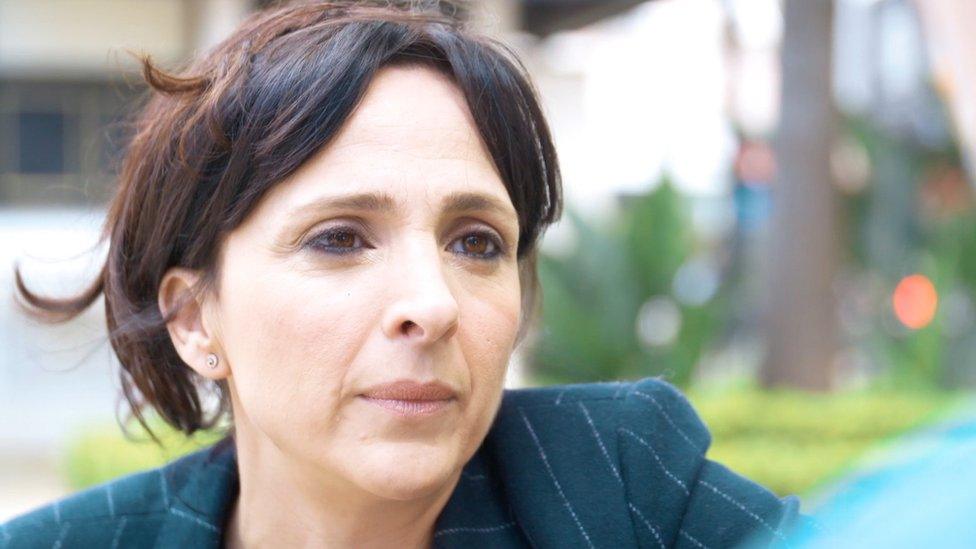
Marlene Hassan Nahon says the abortion legislation is outdated
"We are a society which is still pandering to religious lobbies. And it's obvious that our legislation is extremely outdated on the matter of abortion, especially that it's punishable by life imprisonment," she says.
"It's not as if abortion is not happening. It is happening, and our women are crossing over to Spain.
"The only difference is that they're not getting the pre-counselling that goes with it, or the post-counselling, and therefore we cannot cater for our women, we cannot make abortions safe, we cannot give them the right guidance."
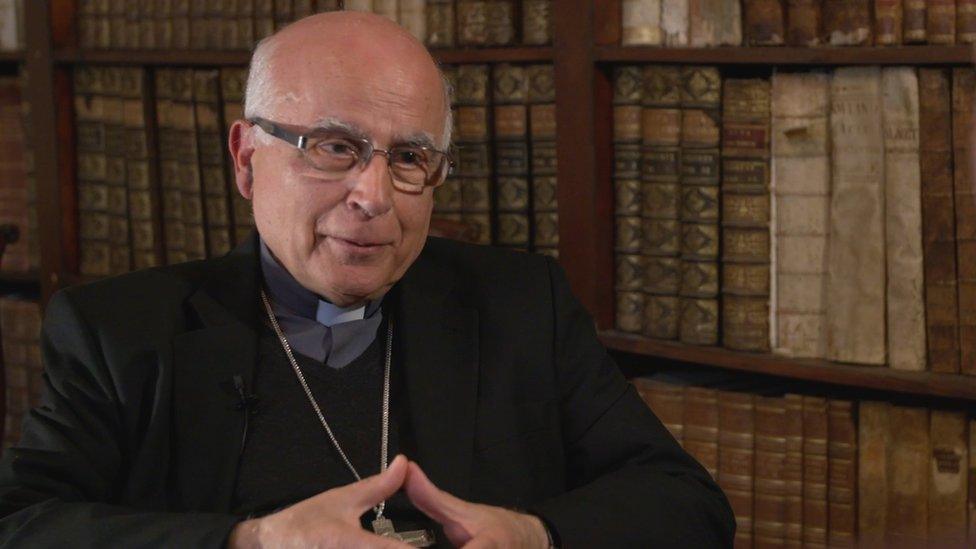
The Bishop of Gibraltar says the country should stick with "what we believe in"
Gibraltar's Catholic community is in the majority. And the Catholic Church has consistently opposed any liberalisation of the law.
The Bishop of Gibraltar, the Right Reverend Carmelo Zammit, says: "If the law allows abortion, then people are going to start thinking there is nothing wrong with abortion."
He says it is right for Gibraltar to "stick to what we believe in" and keep the current law in place, even if women "who want an abortion are going to get it [by having the operation abroad]".
But some campaigners, such as Felix Alvarez, of the Gibraltar Equality Rights Group, think a legal challenge to the government's position might be viable.
He says case law that had emerged from the European Court of Human Rights showed a movement in favour of people being able to access abortions.
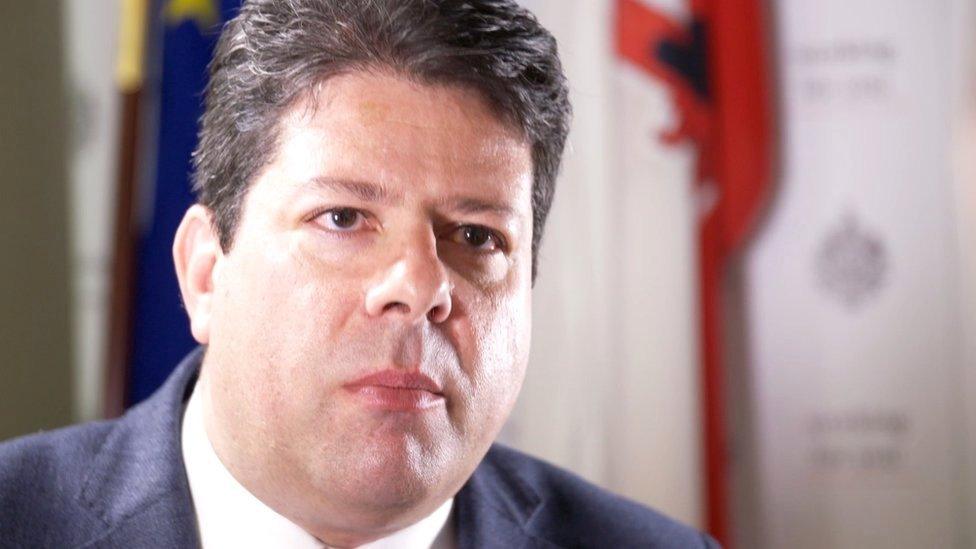
Gibraltar's Chief Minister, Fabian Picardo, refused to make any commitment to a change in the law
One 2018 survey by GBC, the Gibraltar Broadcasting Corporation, suggested about 77% of people in Gibraltar would support legalisation in certain circumstances - such as in cases of rape or to protect a pregnant woman's life.
Gibraltar's Chief Minister, Fabian Picardo, told the Victoria Derbyshire programme the government had "to deal with the moral aspects" of the debate over abortion laws and "do so in a way that takes into account the religious sensitivities that might be in this community".
He said Gibraltar had moved to legalise civil partnerships and equal marriage, which he said had "engaged the same sorts of sensitivities".
Gibraltar also legalised the over-the-counter distribution of the morning-after contraceptive pill last year, a move opposed by the Catholic Church.
But Mr Picardo refused to make any commitment to a change in the law with regards to the penalty for abortion.
Having had her own termination in 2008, Ms Oliva hopes this will change soon - so women don't have to go through what she did.
"I didn't know anybody who had had a termination before. And anyone who had wouldn't speak about it. So, it was quite a lonely experience," she says.
Watch the BBC's Victoria Derbyshire programme on weekdays between 09:00 and 11:00 on BBC Two and the BBC News channel.
- Published19 May 2023
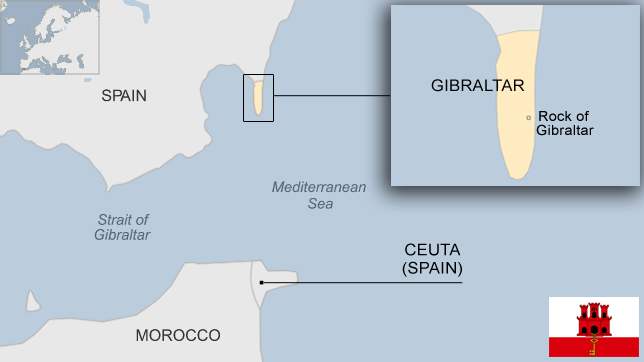
- Published6 April 2018
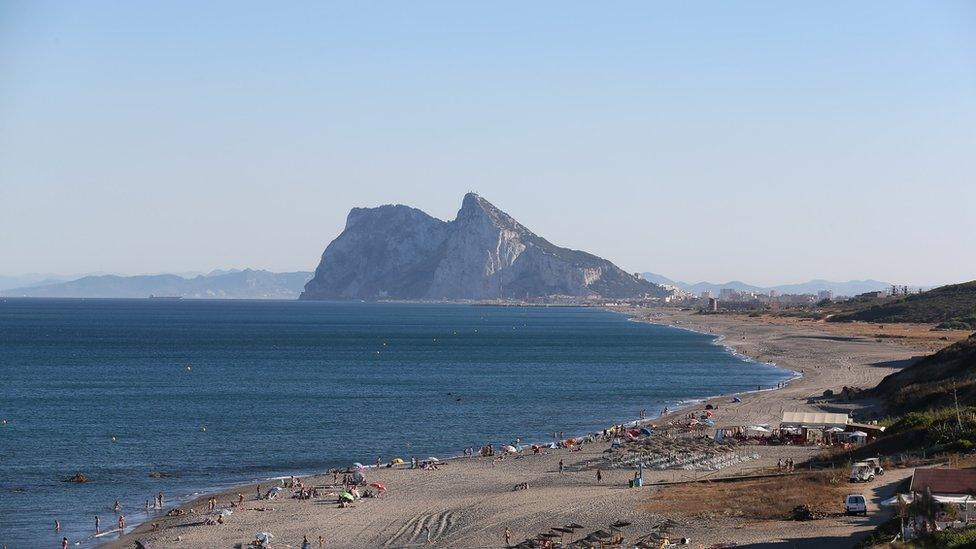
- Published22 February 2018
